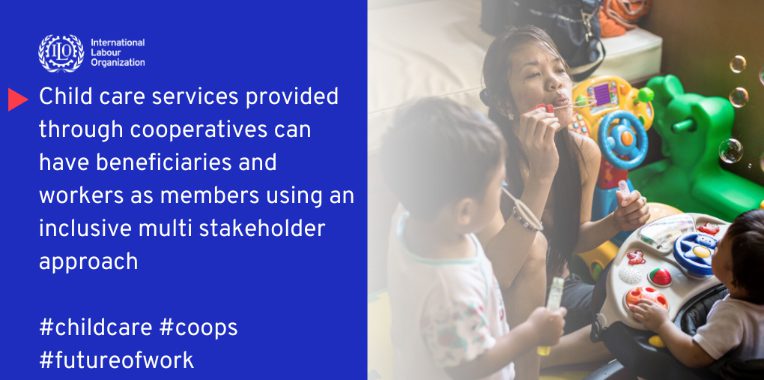Today, care is provided in myriad forms, from childcare and eldercare to care for persons living with a disability or illness. The need for care is growing worldwide, driven by demographic shifts including the growing ageing population and the rising number of persons living with chronic illnesses.
As people-centred, principle driven, member-owned businesses, cooperatives are emerging as an innovative type of care provider, particularly in the absence of viable public or other private options.
Cooperatives provide multiple services (e.g. day care, childcare, foster care and mental/developmental health care, etc.) to distinct populations including elders, children and adolescent youth, and persons living with disabilities or illnesses (mental and/or physical).
There are quite a few cases of cooperatives in the care sector which are multipurpose in nature, reflecting the beneficiaries’ various yet overlapping care needs.
Moreover, cooperatives also tend to have a multi stakeholder nature by involving different stakeholders such as care providers and other workers, beneficiaries and service users, families of service users, governments and community agents, etc.
Cooperatives encourage the active participation of beneficiaries in care plans allowing for a more holistic approach to their needs. For workers of care cooperatives, cooperatives can provide improved wages and benefits or facilitate formalization and professionalization of care workers, especially when these are members of a cooperative.
Within the broader framework of the ILO Director General’s Future of Work and Women at Work Centenary Initiatives, ILO works with the constituents, the cooperative movement and other partners to advance the role of cooperatives in care sector, including through technical supports for care workers’ cooperatives, research, and quality data collection.
On August 23rd, the ILO’s Cooperative Unit (COOP) and the Gender, Equality, Diversity and Inclusion (GEDI) Branch came together with 27 ILO colleagues from headquarters and the field to discuss progress on the initiative Cooperative Care Provision as a Gender-Transformative Decent Work Solution, initially launched in March 2023.













































